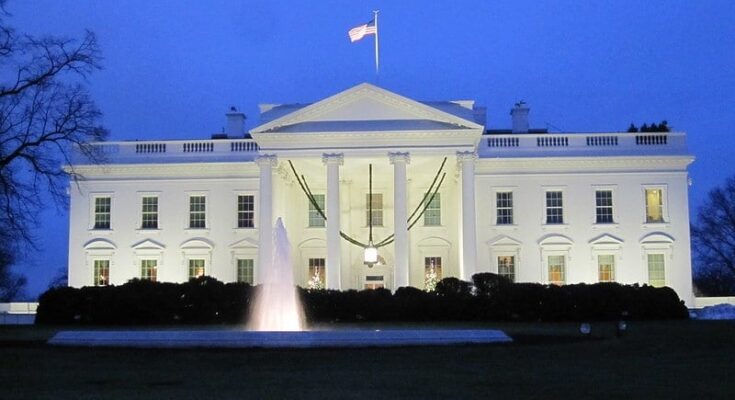
As Israel attacks Hezbollah, Biden’s administration in the US is planning to put an end to the faction’s rule and hold elections for a new president in Lebanon.
Secretary of State Anthony Blinken has called the leaders of Qatar, Egypt, and Saudi Arabia in recent days to ask them to support the election of a new Lebanese president, according to a report in The Wall Street Journal.
Breaking the political deadlock in Lebanon and the weakening of Hezbollah
Senior White House official Amos Hochstein also told Arab officials that the weakening of Hezbollah by Israeli attacks should be seen as an opportunity to potentially break the political deadlock.
Lebanon’s political establishment has failed to agree on a new president since the previous leader, Michel Aoun, left office at the end of his term in 2022.
US targets Lebanese grievances
The Americans’ aim is to address frustrations over years of ineffective governance that have stalled reforms and entrenched the power of Lebanon’s political elites, including Hezbollah, which is also an influential political party.
The effort marks a departure from the government’s calls for an immediate ceasefire. Some in the country and region fear that the push to empower a candidate now could spark the kind of sectarian strife that has torn the country apart in recent decades.
Years of US-backed efforts to force reforms in Lebanon’s governance system have brought little change. The country’s society is fragmented by religious and political divisions entrenched during the French occupation after World War I, with elites from its largest groups—Sunni Muslims, Shia Muslims, Christians, and Druze—sharing government portfolios.
Allies within the walls
The US initiative depends on key Lebanese leaders, such as Prime Minister Najib Mikati and Parliament Speaker Nabih Berri, leader of another Shiite faction and a key Hezbollah mediator in the ceasefire negotiations.
Berri’s presence will be needed to bring Lebanon’s political factions together to elect a new president, according to diplomats familiar with recent discussions. Lebanon’s president is the commander-in-chief of the armed forces and is seen as key to creating a strong Lebanese government that could better handle the current crisis.
Mikati and Berri said last week that they supported the election of a new president, but also expressed their appreciation for Hezbollah in its fight against Israeli forces. Hezbollah’s de facto leader, deputy secretary-general Naim Qassem, this week rejected calls for a political realignment while the war with Israel continues.
Lebanon’s president is elected by the country’s 128-member parliament, where no single bloc has enough seats to choose a new leader on its own. Without the support of Hezbollah and its allies, it is unclear how a political consensus can be reached.
Egypt and Qatar are opposed to US plans to politically sideline Hezbollah in Lebanon
Officials from Egypt and Qatar, which have played a key role in ceasefire negotiations in both Gaza and Lebanon, have told US officials that they believe the US plan is unrealistic and even dangerous.
In talks with US officials, they have argued that Israel will never succeed in destroying Hezbollah and that the group must be part of a political solution to the conflict.
Egypt has also expressed concern that attempts to interfere in Lebanese politics during the crisis could increase the risk of internal conflict in a country that suffered a debilitating civil war that ended in 1990. Many of the country’s political factions are led by former warlords from that conflict.
What caused Lebanon to fail to elect a president?
Political analysts and diplomats say whoever comes to power as a result of Israel’s attacks on Lebanon could face a backlash from the Lebanese public and rival political forces.
When Israel invaded Lebanon in 1982 to oppose the Palestine Liberation Organization, it supported the election of a new president, Bachir Gemayel, the Maronite Christian head of the far-right Lebanese Forces. He was assassinated several weeks after entering office.
The absence of a president has left Lebanon with a caretaker government for the past two years, a leadership vacuum that has exacerbated the country’s economic crisis. The collapse of the Lebanese economy has pushed millions of people into poverty and left the state ill-equipped to deal with the crisis caused by the current war.
Weakened state institutions
Government institutions have been weakened by years of corruption and political gridlock. Parliament has not been in session since May. The Lebanese currency has lost 97 percent of its value against the US dollar since 2019, making government salaries almost worthless.
Lebanese officials are skeptical that any domestic force can challenge elite politics. “We are lacking any kind of leadership to at least start on a path where we can see a light at the end of the tunnel,” said Ibrahim Mneimneh, a reformist member of parliament who represents a district in Beirut.



